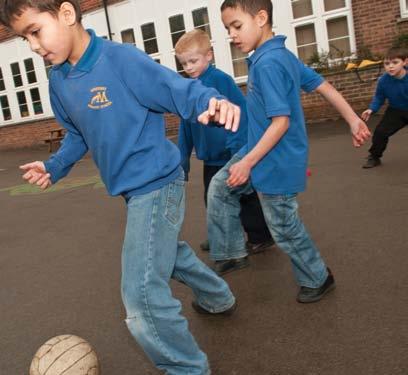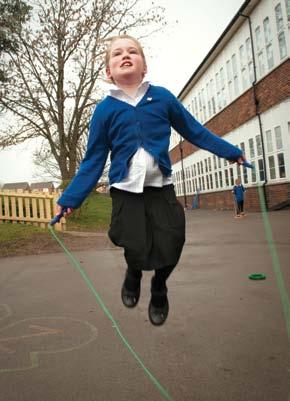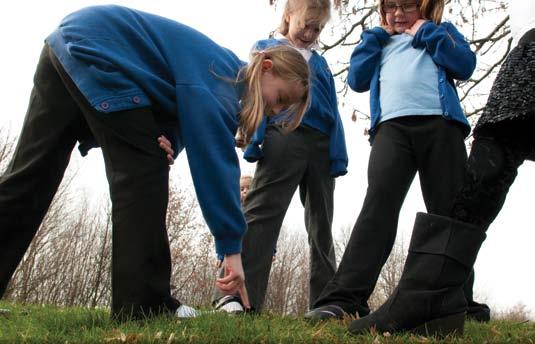
4 minute read
Exploring playground games: past and present

usse B da Lin
Advertisement
Children from Monteney Primary School, Sheffield, in the playground: (clockwise from top left) pretend play – Horses; football; clapping; skipping; counting out or dipping to see who will be ‘It’; pretend play – Aargh.




Are playground games and songs still a part of children’s lives in this digital age? What does this oral tradition borrow from television, films and new media? A major national research project has been investigating this fascinating aspect of childhood.
The two - year project , which was carr ied out by
researchers from the Universities of Sheffield, London and East London, and the British Library’s National Sound Archive, involved updating, analysing and re-presenting the British Library National Sound Archive’s recordings of children’s games and songs gathered during the 1960s and 70s by collectors Iona and Peter Opie. It was supported by an authoritative expert advisory panel of academics, game industry representatives and specialists in children’s oral culture, including the former Children’s Laureate, Michael Rosen.
Professor Jackie Marsh, Head of Sheffield’s School of Education, said, “This project has been very important in outlining contemporary children’s playground culture and identifying how there is both continuity and change in the games children play and the ways in which they draw on media culture in this play.”
The findings reveal that television and films are a major source for fantasy play amongst children, including newer genres of television programmes such as talent competitions (Britain’s Got Talent) and reality television programmes (The Jeremy Kyle Show). Television advertisements, popular music and dance, and children’s computer virtual worlds also influence playground games. Some kinds of play popular in the mid-20th century, such as skipping, ball bouncing and singing games, are less popular in contemporary playgrounds, but other kinds of play have blossomed, such as clapping and dance routines, or remain popular, such as chasing games. Another difference from the Opies’ time is that boys as well as girls take part in pop singing and dancing in the playground.
As part of the project, material from the Opies’ collection was digitised and an interactive website was designed. The website, which is hosted by the British Library and co-curated by children participating in the project, breaks new ground in the exhibition of children’s culture. In addition, a study of playground culture was carried out in two primary schools, one in London, one in Sheffield, to explore how games, songs and rhymes are used by children and how they relate to children’s experiences of popular media such as comics, TV, film, the internet and computer games. Another element of the project explored the relationship between playground games and computer games, involving the development of an innovative prototype computer game using Wii and Kinect technology (Game Catcher). This allowed children to record the moves of their games before playing them back to see them Poet Ian McMillan with performed by an on-screen avatar. children at the special event held to mark the This also created an archive of games conclusion of the project. usable by researchers. The final part of the project was a documentary film on children’s playground culture called Ipi-Dipi-dation My Generation. It features children from the two schools talking about their play and games.
Researchers, teachers and primary school pupils took part in a special event held at the Showroom in Sheffield on 15 February 2011 to celebrate the conclusion of the project. The children were able to watch excerpts from the documentary, share their experiences of recording play and games, try out the British Library playground games and rhymes website, and play with the Game Catcher videogame. Special guest, poet Ian McMillan involved the pupils in a series of poetry workshops to explore their own playground games and rhymes.
Professor Marsh commented, “We have found that children’s play is as vibrant and imaginative as ever and the project has been very successful in actively involving children in researching this area and disseminating their own findings. We intend to continue our work on identifying the rich variety of activities in which children engage in the digital age and exploring the inventiveness and creativity of their play.”






